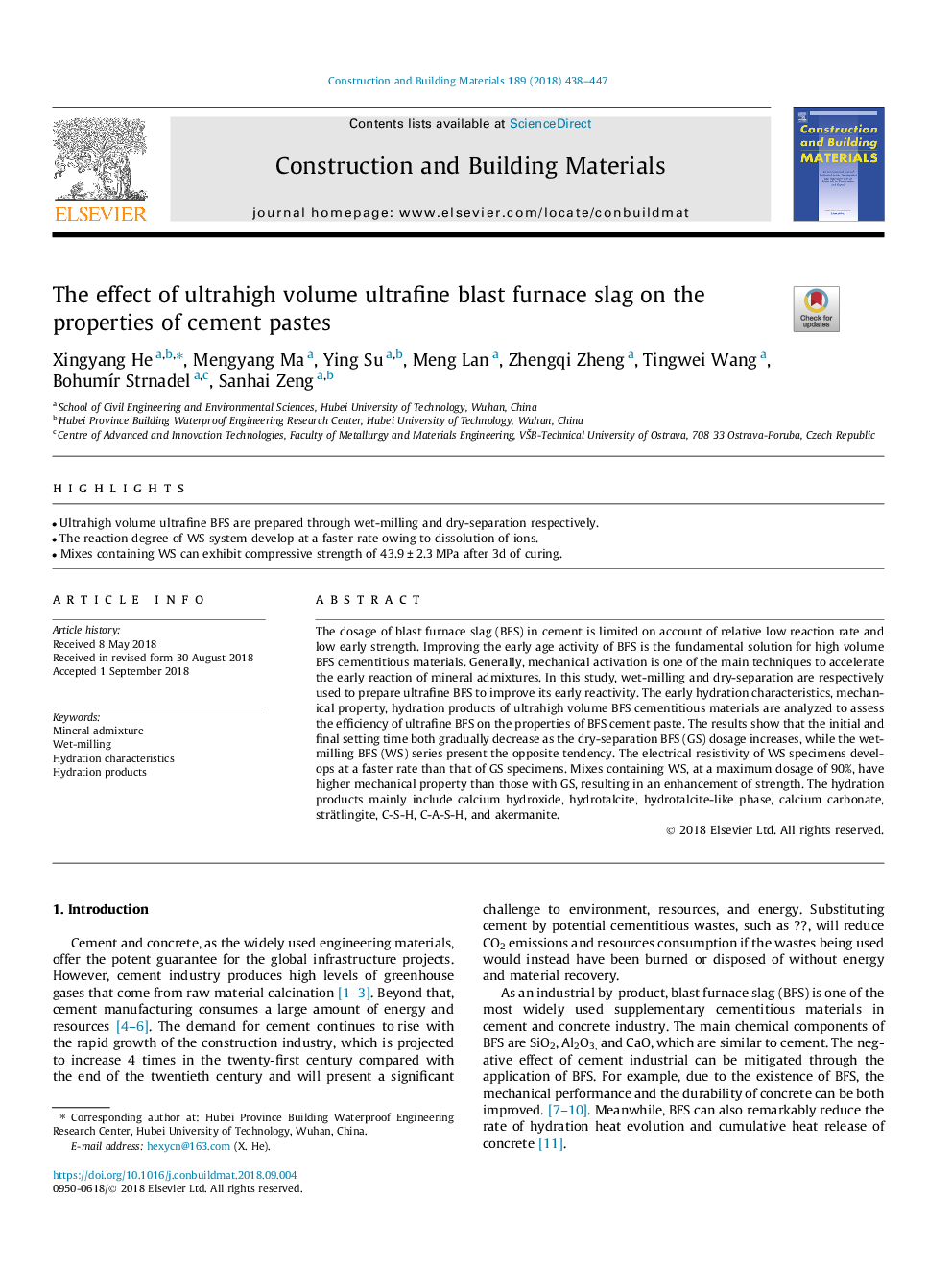| Article ID | Journal | Published Year | Pages | File Type |
|---|---|---|---|---|
| 10145684 | Construction and Building Materials | 2018 | 10 Pages |
Abstract
The dosage of blast furnace slag (BFS) in cement is limited on account of relative low reaction rate and low early strength. Improving the early age activity of BFS is the fundamental solution for high volume BFS cementitious materials. Generally, mechanical activation is one of the main techniques to accelerate the early reaction of mineral admixtures. In this study, wet-milling and dry-separation are respectively used to prepare ultrafine BFS to improve its early reactivity. The early hydration characteristics, mechanical property, hydration products of ultrahigh volume BFS cementitious materials are analyzed to assess the efficiency of ultrafine BFS on the properties of BFS cement paste. The results show that the initial and final setting time both gradually decrease as the dry-separation BFS (GS) dosage increases, while the wet-milling BFS (WS) series present the opposite tendency. The electrical resistivity of WS specimens develops at a faster rate than that of GS specimens. Mixes containing WS, at a maximum dosage of 90%, have higher mechanical property than those with GS, resulting in an enhancement of strength. The hydration products mainly include calcium hydroxide, hydrotalcite, hydrotalcite-like phase, calcium carbonate, strätlingite, C-S-H, C-A-S-H, and akermanite.
Related Topics
Physical Sciences and Engineering
Engineering
Civil and Structural Engineering
Authors
Xingyang He, Mengyang Ma, Ying Su, Meng Lan, Zhengqi Zheng, Tingwei Wang, BohumÃr Strnadel, Sanhai Zeng,
